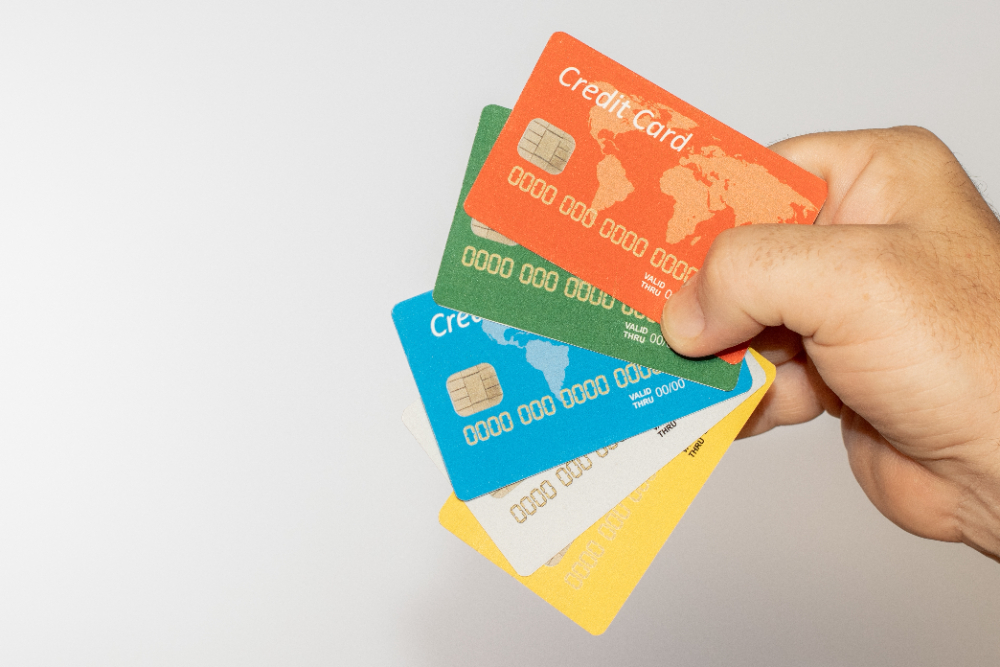Smart Strategies for Selecting the Best Credit Card
The credit card market in America is vast, and you need to understand each type to make the best choice this year!
Choosing the best credit card is a challenging task, especially with so many options in a credit-heavy market like the U.S.
From cards geared toward cashback to those offering travel rewards or lower interest rates, understanding which option is best for your financial needs requires research and planning.

This guide presents smart strategies to help you make the right choice.
What do you need?
Ask yourself some questions, such as:
| What is the main goal of my credit card? |
| Do I intend to use it for daily purchases, travel, or emergencies? |
| Do I usually pay the balance in full or carry monthly balances? |
Know the Types of Credit Cards
Here are the main categories of credit cards available in the U.S.:
- Rewards Cards: Offer points, miles, or cashback on purchases.
For whom it’s recommended: Those who use their card frequently and can take advantage of earning rewards. - Low APR Cards: These cards offer low-interest rates, especially for balance transfers.
For whom it’s recommended: This is useful for those who need to carry a balance and pay off debts from other cards. - Credit Building Cards: Options with or without a security deposit and minimal credit history requirements.
For whom it’s recommended: Those starting or rebuilding their credit history, such as students or individuals with limited credit. - Zero Fee Cards: Cards with no annual fee, though they may offer fewer benefits.
For whom it’s recommended: Cards for those who need occasional use and prefer low-cost day-to-day spending.
Evaluate Fees and Terms
Each credit card comes with a set of fees and terms that can impact your financial use. When evaluating your options, pay attention to:
- Interest Rates (APR): Prefer cards with low-interest rates, especially if you can’t pay your balance in full every month.
- Annual Fees: Some cards charge annual fees, but this can be worthwhile if the benefits offered outweigh the cost.
- Cash Advance Fees: Avoid cards with high costs for cash advances.
- Foreign Transaction Fees: If you travel frequently, choose cards that don’t charge these fees.
Compare Additional Benefits
| Car rental insurance |
| Fraud protection |
| Extended warranties for purchases |
| Access to airport VIP lounges |
| Travel benefits, such as baggage insurance and flight delay coverage |
If these benefits align with your lifestyle, they can add significant value to the card you choose.
Consider the Issuer’s Reputation
The company that issues the card is also important. Institutions like American Express, Chase, and Capital One have strong reputations in the U.S.
Check the quality of customer service and the services offered, such as user-friendly mobile apps and account management tools.
Understand Your Credit Score
Your credit score is a key factor in card approval and in determining your terms. Check your credit score before applying and choose a card that matches it.
- Excellent Credit (720+): Access to the best rates and rewards.
- Good Credit (690-719): Good options are available, but fewer premium benefits.
- Fair or Poor Credit (629 or less): Focus on secured cards or those with fewer requirements.
Avoid Applying for Too Many Cards at Once
Each credit card application generates an inquiry on your credit report, which can temporarily lower your score.
Prioritize cards with the highest likelihood of approval to avoid negative impacts on your credit history.
Use Online Comparison Tools
Specialized websites offer comparison tools that simplify the process of choosing the ideal card.
Enter your preferences and spending habits to receive personalized recommendations.
Tips for Efficient Card Use
Whenever possible, avoid carrying balances to the next month. Use apps to monitor your spending and avoid exceeding your budget.
Sign up for loyalty programs and maximize your benefits. If your credit score improves, contact the issuer to negotiate better terms.
Choosing the best credit card in the U.S. is a decision that requires research, self-awareness, and attention to detail.
By following these smart strategies, you’ll be better prepared to make an informed decision, taking advantage of the benefits of credit without compromising your financial health.





